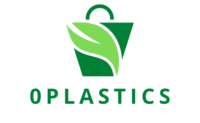In today’s fast-paced landscape, businesses are constantly vying for attention in a market saturated with products. While a compelling offering remains crucial, a growing number of companies are recognizing the vital role community initiatives and educational efforts play in fostering sustainable growth and brand loyalty.
Moving beyond transactional relationships, these forward-thinking businesses are investing in building meaningful connections with their customers and stakeholders. This shift represents a paradigm change, prioritizing long-term value creation over short-term profit maximization.
Community Initiatives: Cultivating Deeper Connections
Community initiatives offer a platform for brands to transcend their product offerings and engage with their audiences on a deeper level. Here are some ways businesses can harness the power of community:
- Building online communities: Creating forum-style platforms or active social media groups allows for direct interaction with customers, fosters dialogue, and creates a sense of belonging. These online spaces can offer peer-to-peer support, knowledge sharing, and a valuable feedback loop for product development.
- Hosting offline events: Organizing workshops, meet-and-greets, or even volunteer activities strengthens the physical connection with customers and allows for face-to-face interaction. These events can build genuine relationships, showcase brand values, and solidify customer loyalty.
- Championing social causes: Aligning with causes important to your target audience and actively contributing through sponsorships, volunteer opportunities, or product donations fosters a sense of shared purpose. This demonstrates empathy and social responsibility, resonating deeply with customers who value brands that align with their own values.
Educational Efforts: Empowering and Upskilling
By offering educational resources and initiatives, businesses can empower their customers, establish themselves as thought leaders, and build lasting trust. Here are some impactful approaches:
- Creating educational content: Providing informative blog posts, webinars, tutorials, or even online courses empowers customers to use your products more effectively and builds trust in your expertise. This content fosters engagement, retention, and even drives product development based on customer needs.
- Partnering with educational institutions: Collaborating with universities, colleges, or vocational training programs can open doors to talent acquisition, brand awareness among future generations, and the opportunity to contribute to skill development.
- Developing mentorship programs: Connecting experienced individuals within your community with aspiring entrepreneurs or professionals can foster knowledge transfer, provide valuable guidance, and create a supportive network for growth.
The Synergy of Community and Education
When strategically combined, community initiatives and educational efforts create a powerful synergy that transcends mere product promotion. Customers feel valued and empowered, their loyalty deepens, and brand advocacy flourishes. This leads to:
- Improved customer retention and acquisition: Strong communities and knowledge-sharing platforms attract new customers and keep existing ones engaged, leading to organic growth.
- Enhanced brand reputation: Active engagement in social causes and education initiatives fosters a positive brand image, attracting both customers and talent.
- Market differentiation: By prioritizing community and education, businesses stand out from competitors focused solely on transactional relationships.
- Innovation driven by customer needs: Active engagement with customers through both communities and educational efforts creates valuable feedback loops, inspiring product development and innovation that truly addresses customer needs.
Conclusion:
In today’s competitive environment, simply offering a good product is no longer enough. By nurturing communities, investing in educational initiatives, and fostering genuine connections, businesses can build lasting relationships with their customers, differentiate themselves in the market, and establish themselves as leaders in their field. This shift from product-centric to community-focused is not just a marketing strategy; it’s a commitment to creating shared value, empowering customers, and driving sustainable growth through authentic engagement.
This article has provided a glimpse into the world beyond products, where community and education pave the path to success. It’s time for businesses to embrace this paradigm shift and redefine what it means to thrive in the modern marketplace.
